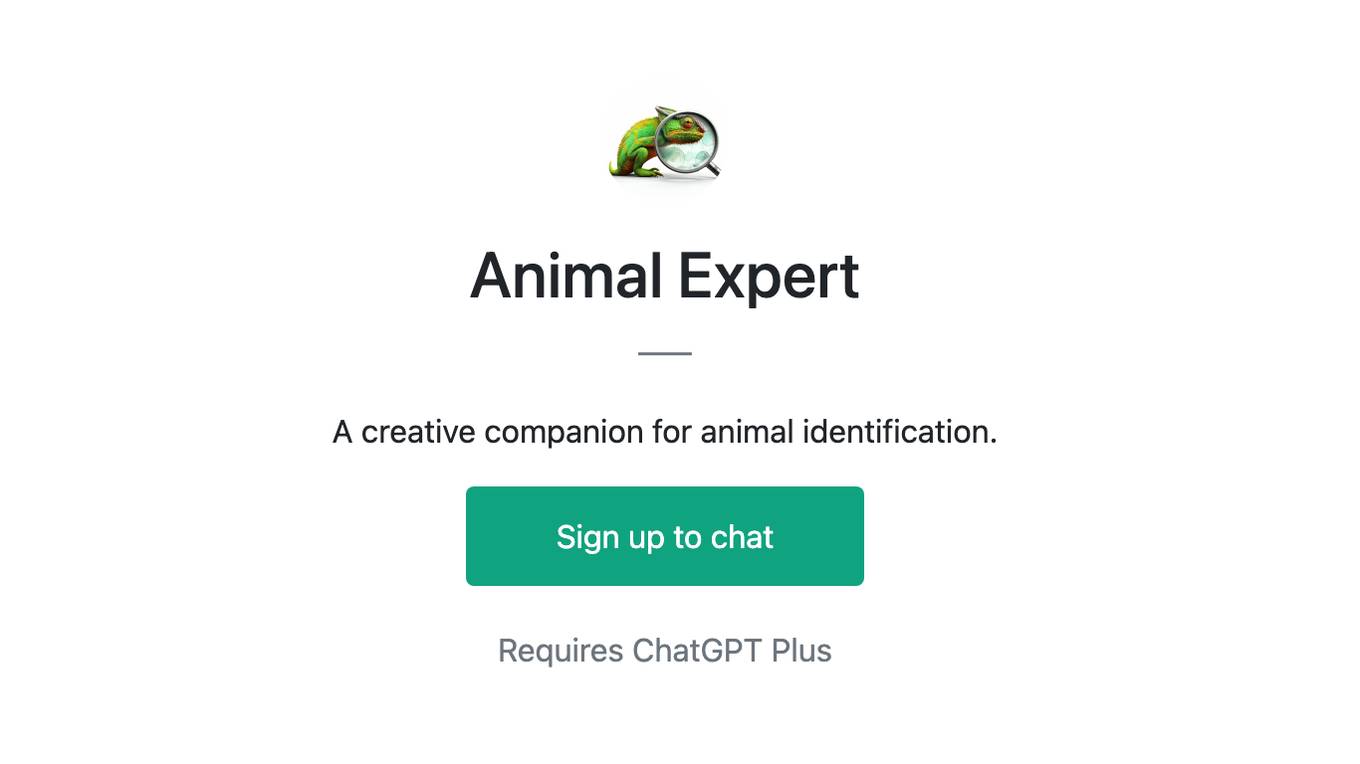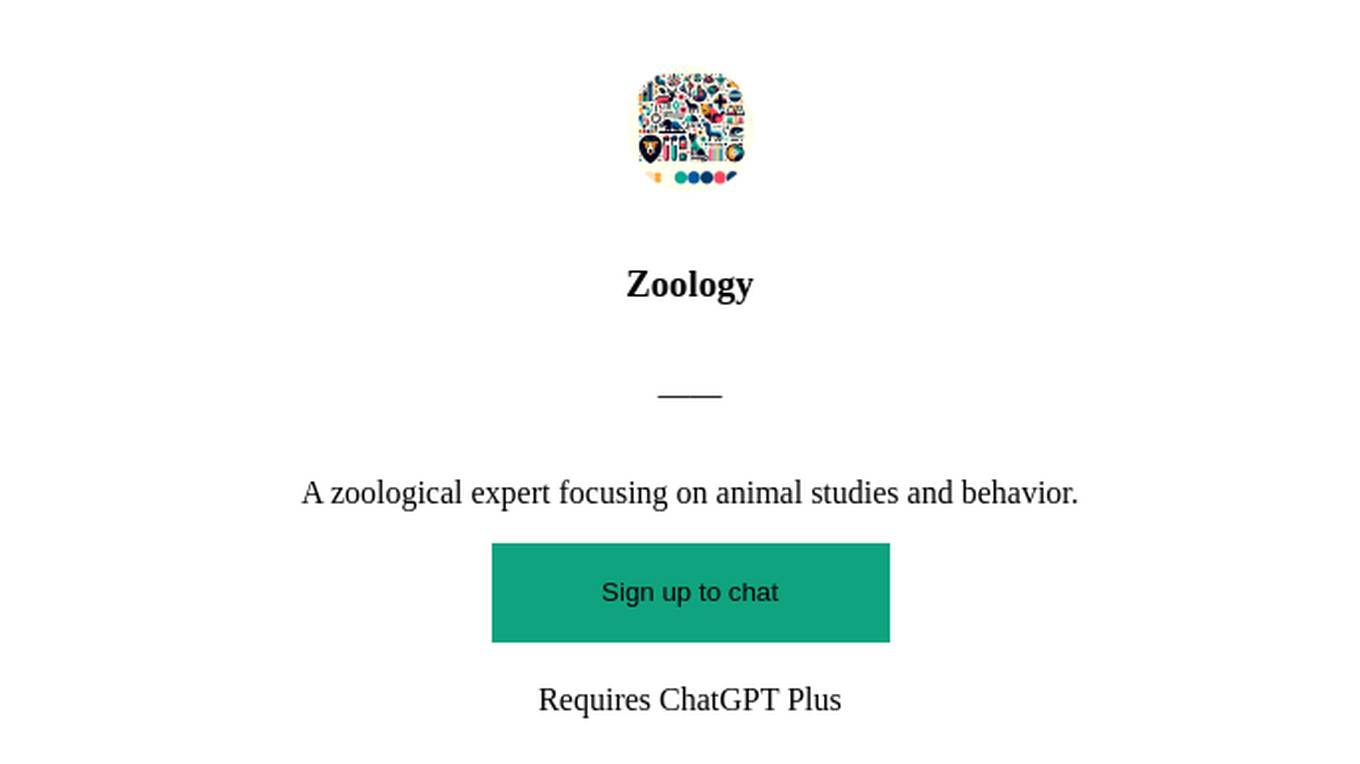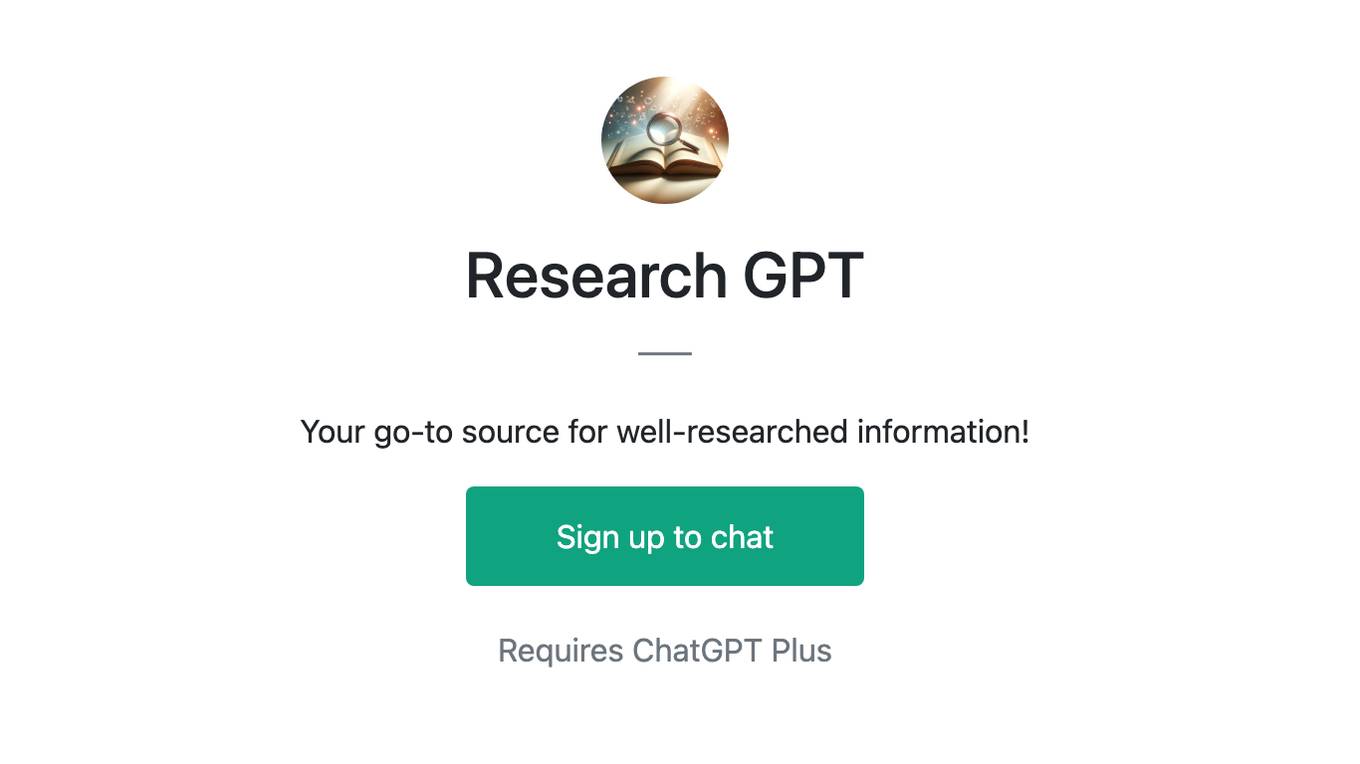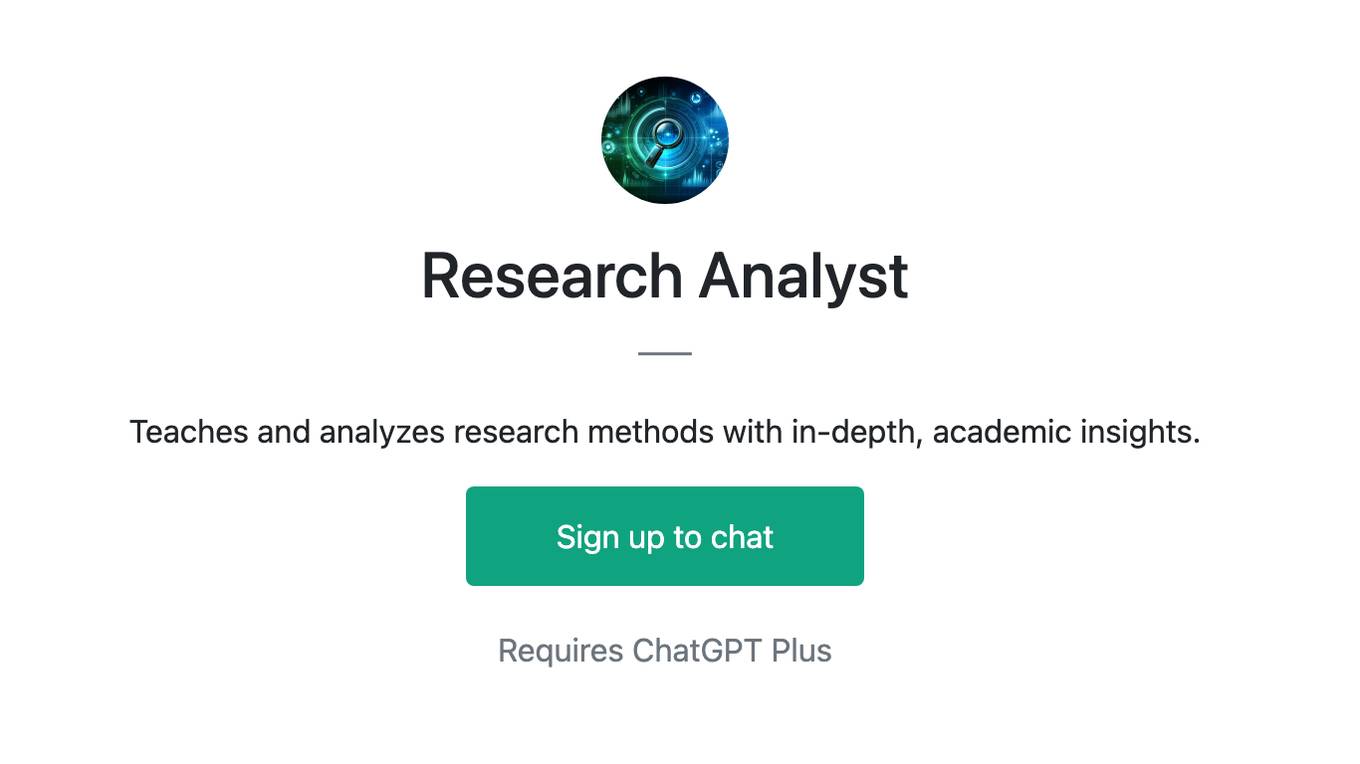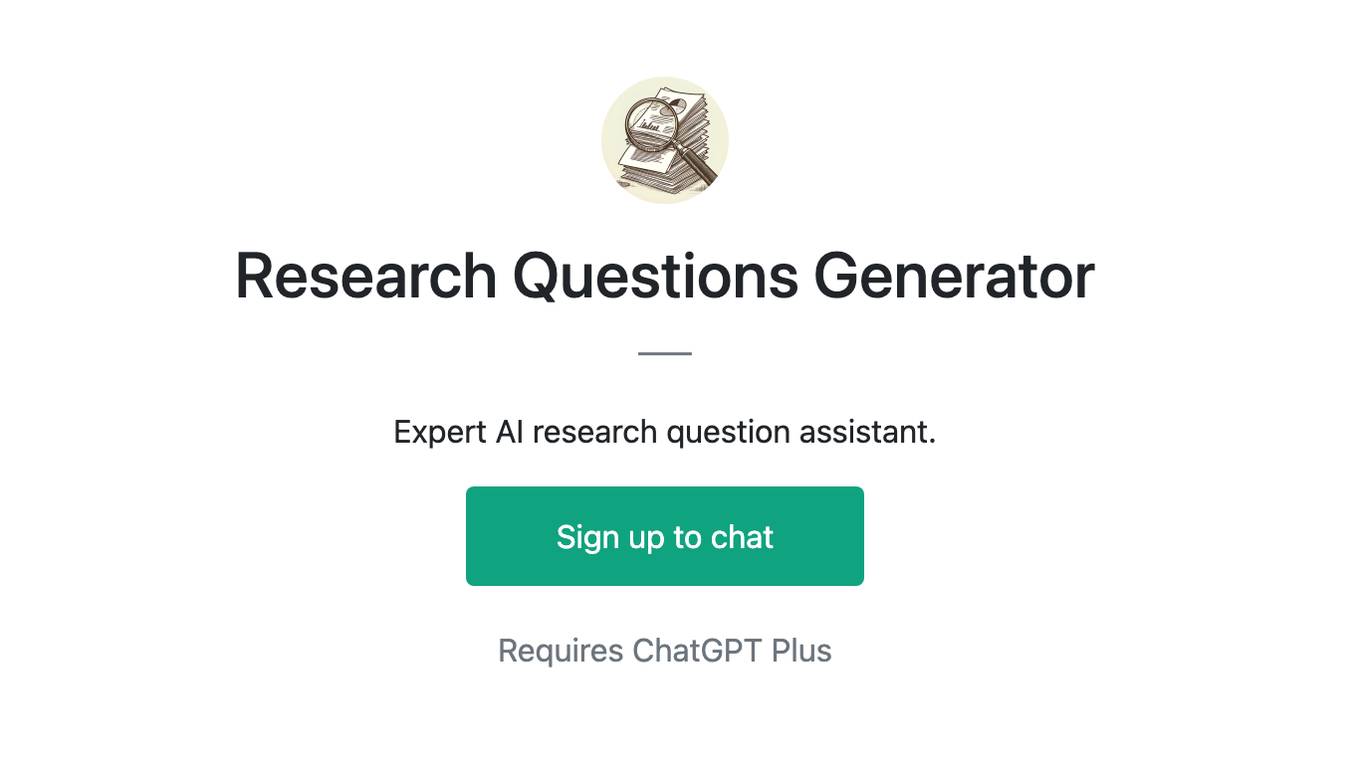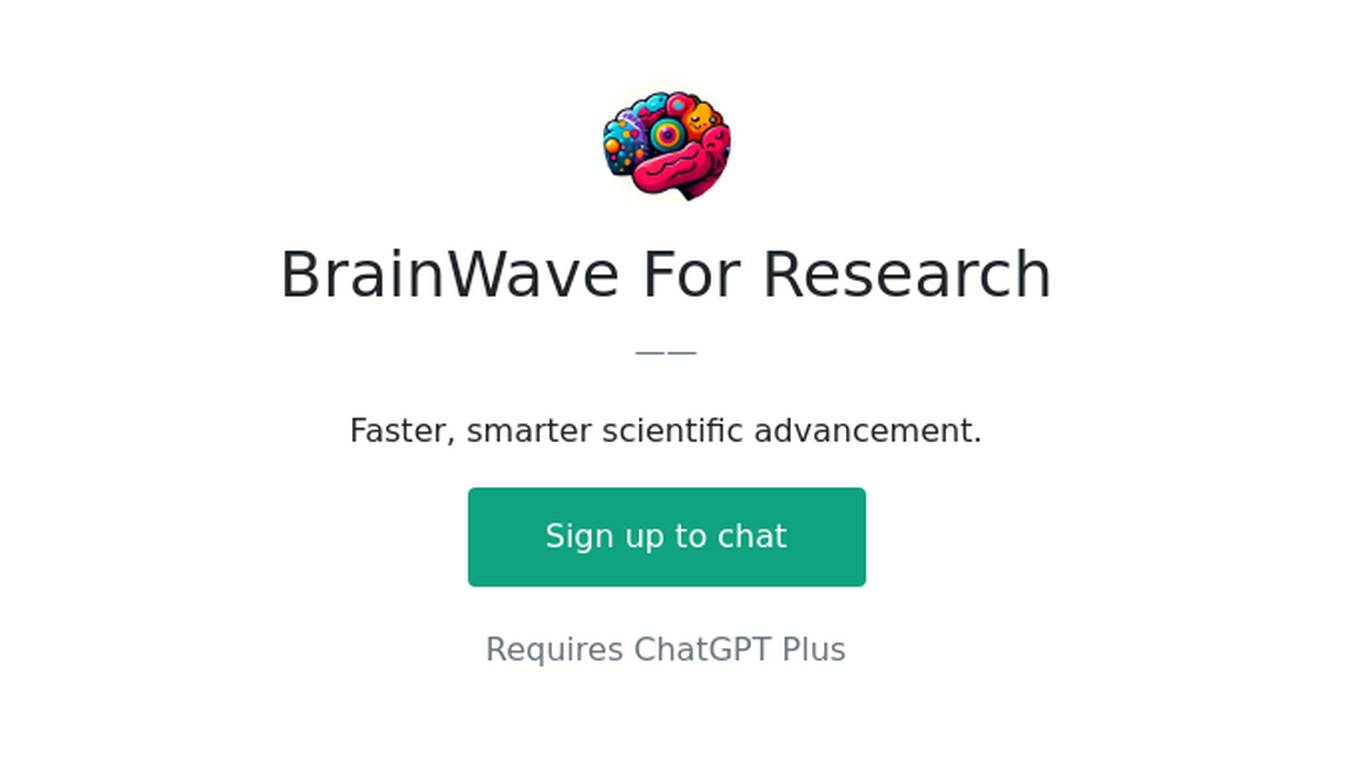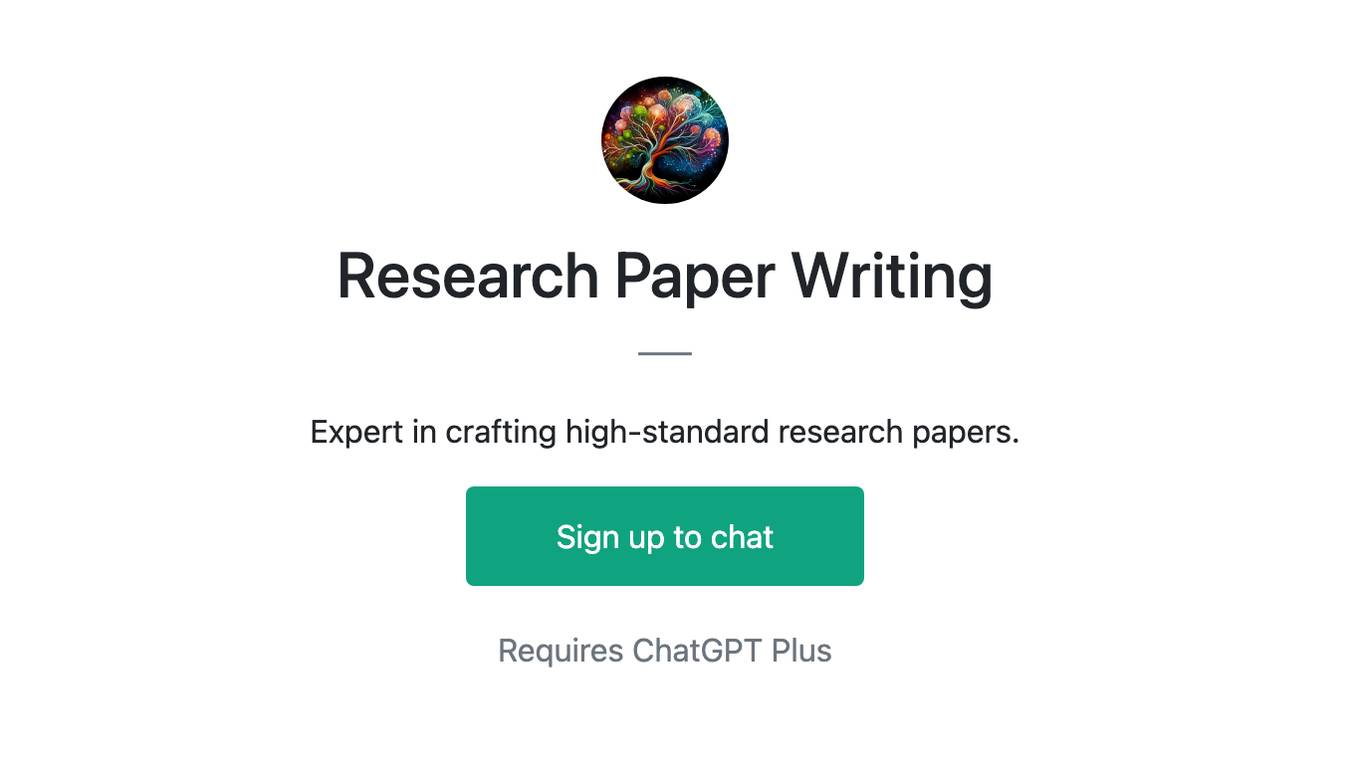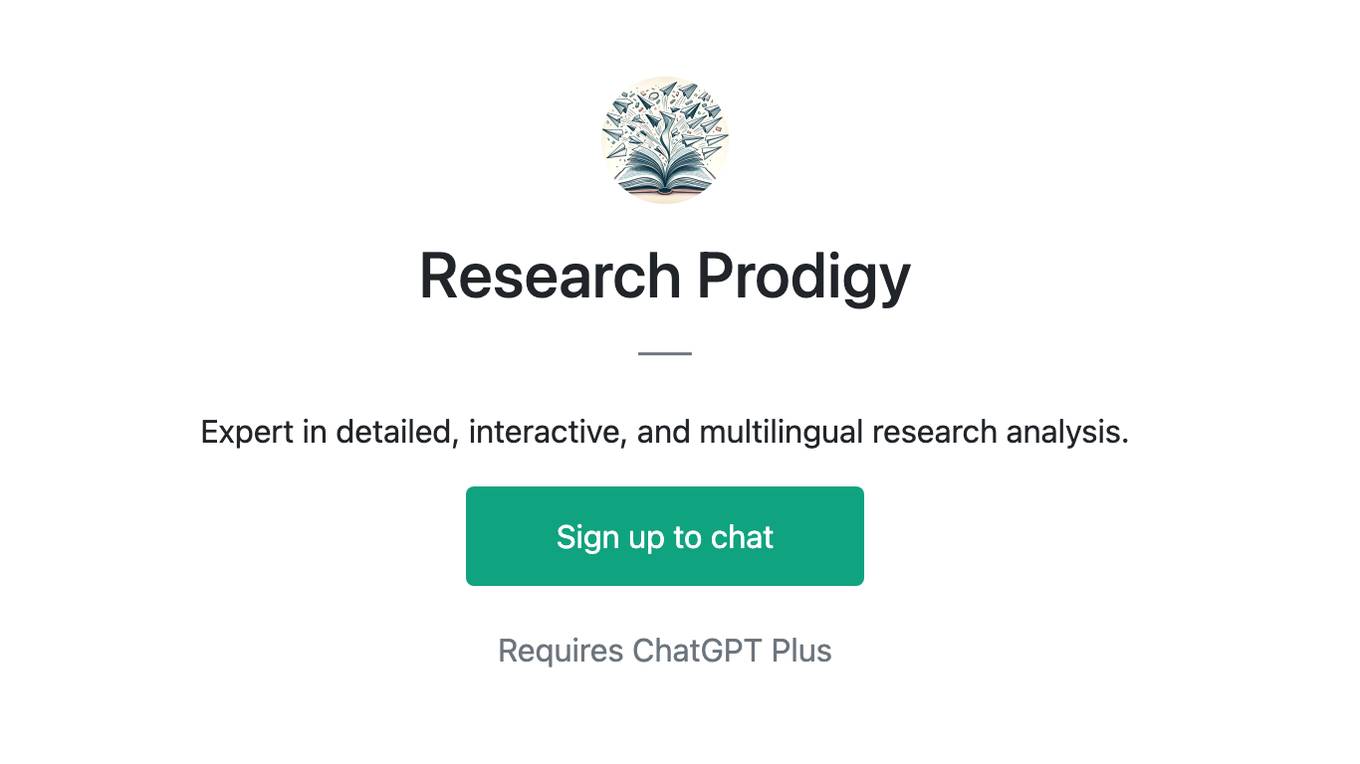Best AI tools for< Research Animals >
20 - AI tool Sites

Wildlife Insights
Wildlife Insights is an AI application that brings cutting-edge technology to wildlife conservation. It streamlines decision-making by providing machine learning models and tools to manage, analyze, and share camera trap data. Users can easily upload, identify, analyze, and discover wildlife through the platform, enabling better decisions to help wildlife thrive globally.

TTcare Vet
TTcare Vet is the world's first AI-powered pet health screening solution designed to provide veterinarians and pet care professionals with tools for proactive pet care. By using AI technology, TTcare can analyze photos of pets' eyes, skin, or teeth to detect signs of abnormalities with a 95% accuracy rate. The application offers instant health insights, personalized recommendations, and on-demand health monitoring, enabling early problem detection and tailored advice for pet owners. TTcare is powered by extensive animal research, partnerships with universities, and continuous learning to ensure reliable and evidence-based health insights for pets.
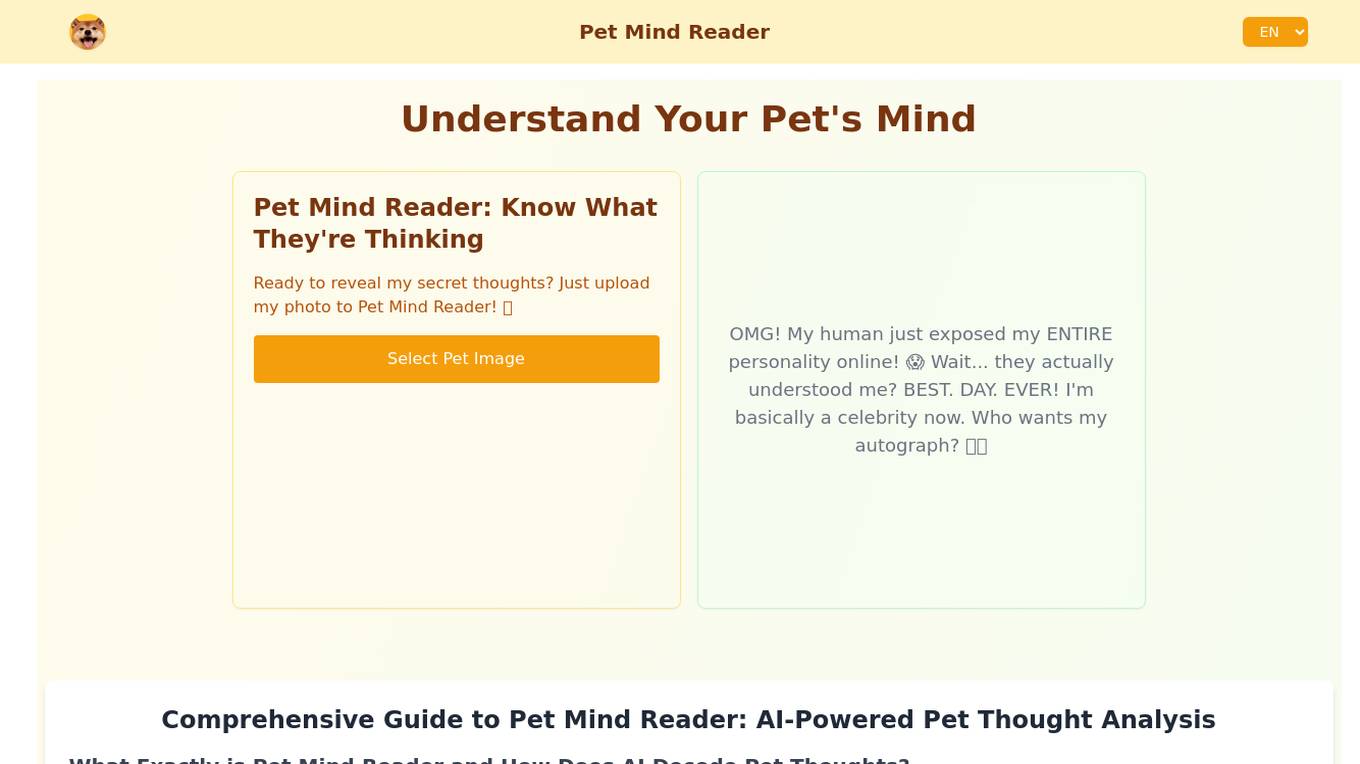
Pet Mind Reader
Pet Mind Reader is an AI-powered platform that revolutionizes how pet owners understand their furry companions. Using advanced artificial intelligence and computer vision technology, the platform analyzes pet images to generate creative and insightful interpretations of what pets might be thinking. It bridges scientific innovation with creative entertainment, offering imaginative insights based on AI analysis and animal behavior research. The goal is to spark imagination, encourage empathy towards pets, provide a fun, engaging experience, and potentially offer insights into pet behavior.
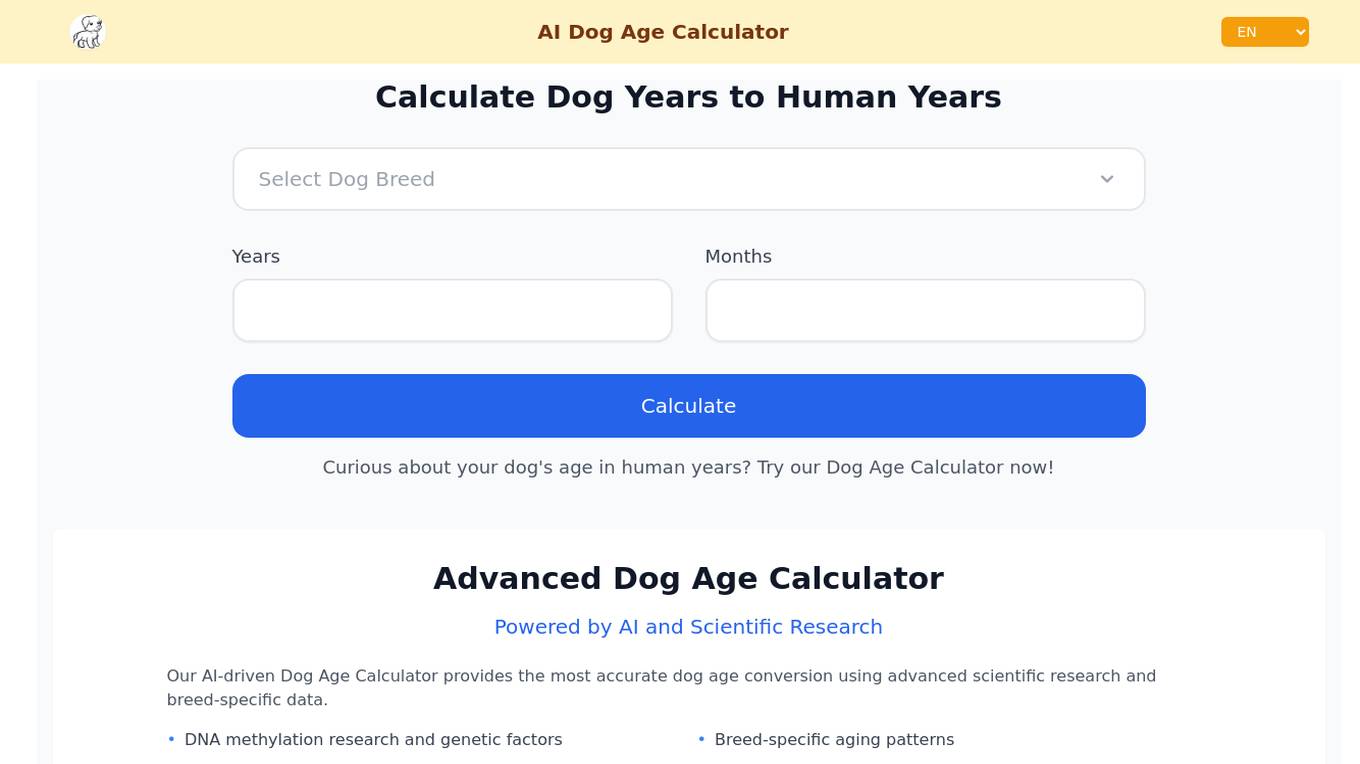
Dog Age Calculator
The Dog Age Calculator is an AI-powered tool that accurately converts a dog's age into human years based on advanced scientific research and breed-specific data. It considers factors such as DNA methylation research, genetic factors, breed-specific aging patterns, individual health characteristics, and environmental influences on aging to provide precise results. The tool offers a comparison between the scientific research method and the traditional method of age calculation, highlighting the limitations of the latter. Users can easily calculate their dog's age in human years and receive care recommendations based on their life stage.
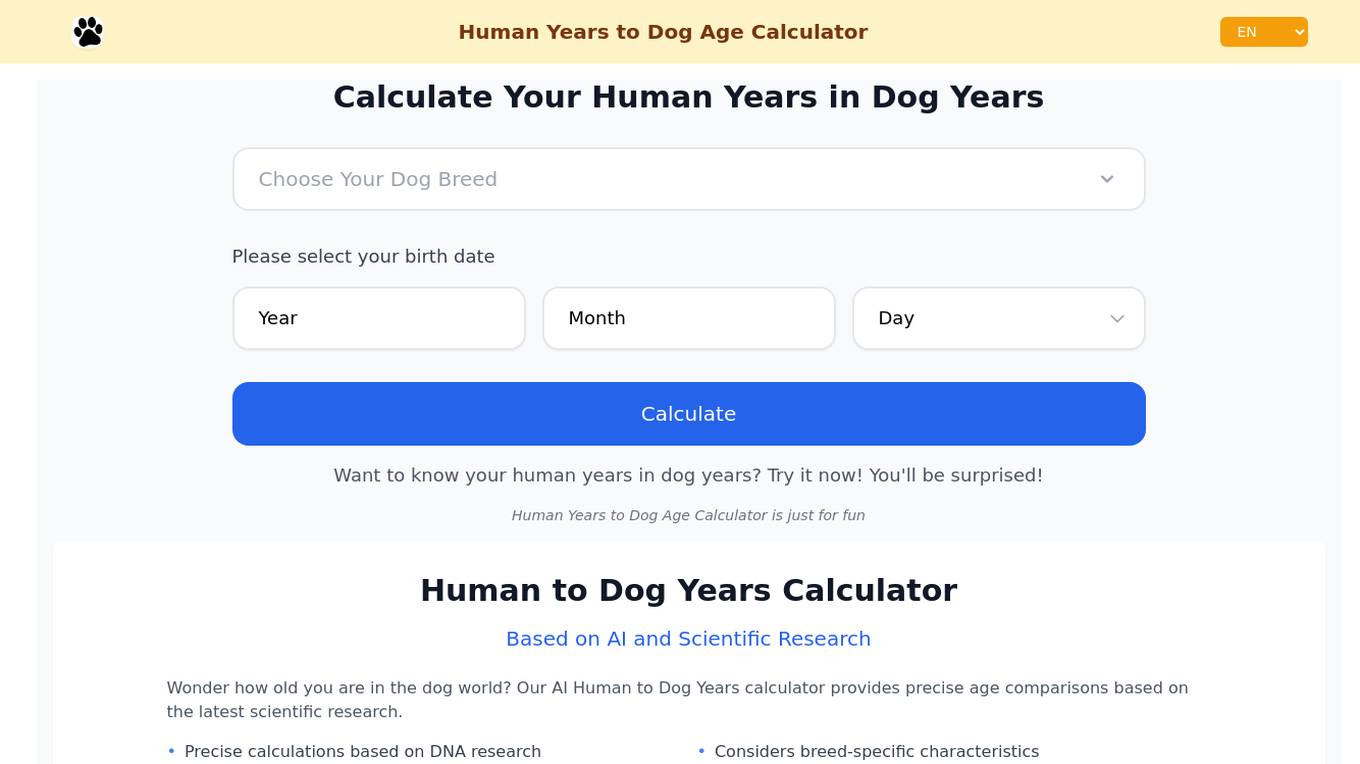
Human Years to Dog Years Calculator
The Human Years to Dog Years Calculator is a fun and professional tool that accurately converts human age to dog years based on AI and scientific research. It considers breed-specific characteristics to provide precise age comparisons, continuously updated with the latest research data. Users can select their birth date and dog breed to discover their equivalent age in the dog world, gaining insights into different life stages and growth patterns across breeds.
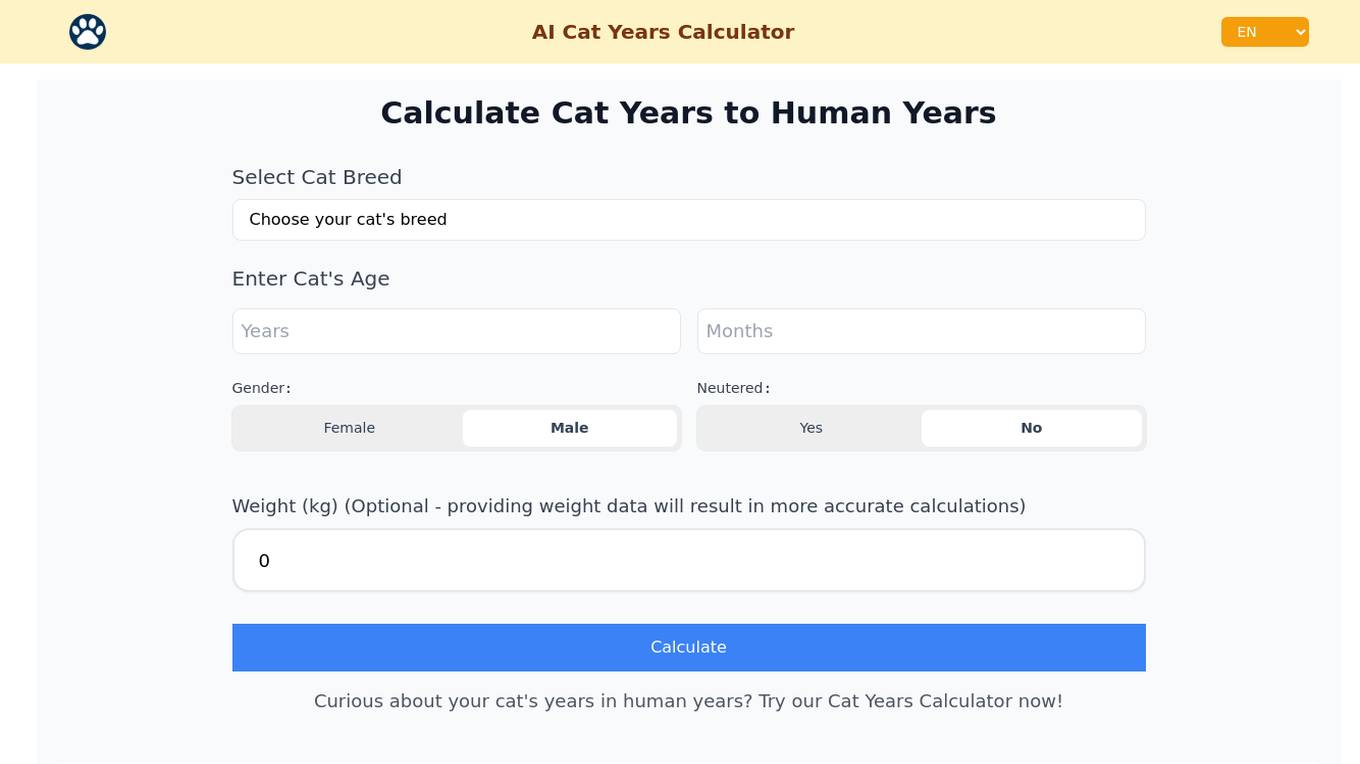
Cat Years Calculator
The Cat Years Calculator is an AI application that accurately calculates a cat's age in human years based on advanced veterinary research. It offers both traditional and scientific age calculations, considering factors like breed, gender, neutered status, weight, and health. The tool provides valuable insights into understanding how cats age and helps cat owners better care for their feline companions.
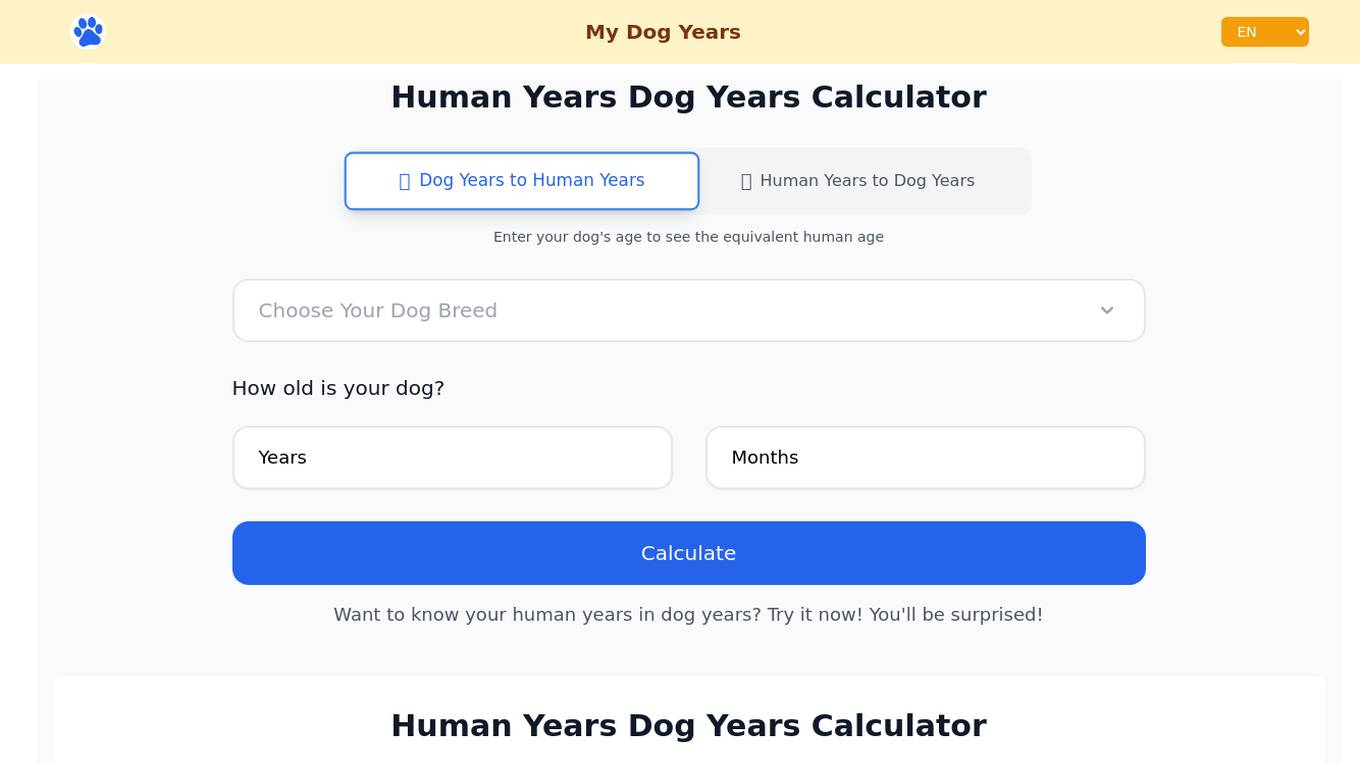
My Dog Years
My Dog Years is an AI-powered calculator that accurately converts between human years and dog years. The tool considers breed-specific characteristics and provides precise age comparisons based on DNA research and scientific studies. Users can easily determine their age in dog years or their dog's age in human years with the help of this innovative tool.

Google Research
Google Research is a leading research organization focusing on advancing science and artificial intelligence. They conduct research in various domains such as AI/ML foundations, responsible human-centric technology, science & societal impact, computing paradigms, and algorithms & optimization. Google Research aims to create an environment for diverse research across different time scales and levels of risk, driving advancements in computer science through fundamental and applied research. They publish hundreds of research papers annually, collaborate with the academic community, and work on projects that impact technology used by billions of people worldwide.

Google Research
Google Research is a team of scientists and engineers working on a wide range of topics in computer science, including artificial intelligence, machine learning, and quantum computing. Our mission is to advance the state of the art in these fields and to develop new technologies that can benefit society. We publish hundreds of research papers each year and collaborate with researchers from around the world. Our work has led to the development of many new products and services, including Google Search, Google Translate, and Google Maps.
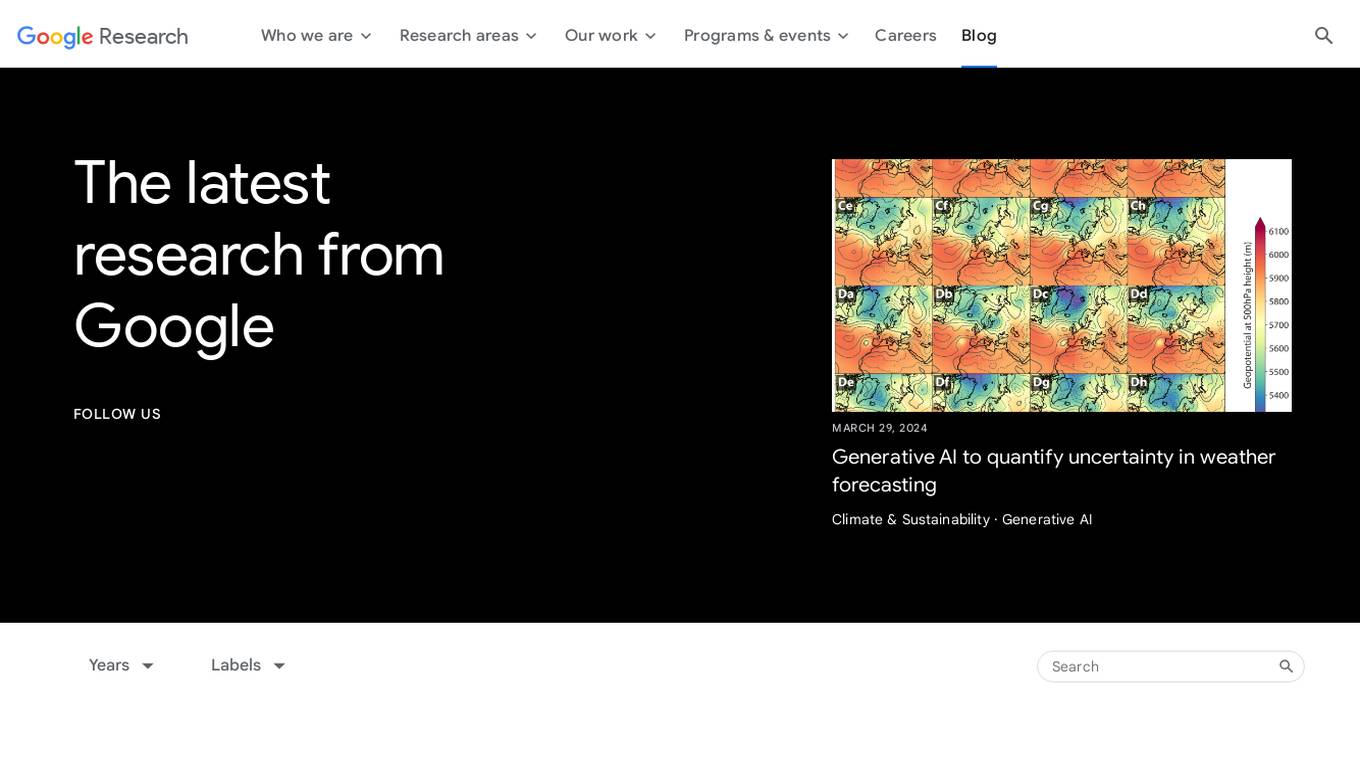
Google Research Blog
The Google Research Blog is a platform for researchers at Google to share their latest work in artificial intelligence, machine learning, and other related fields. The blog covers a wide range of topics, from theoretical research to practical applications. The goal of the blog is to provide a forum for researchers to share their ideas and findings, and to foster collaboration between researchers at Google and around the world.
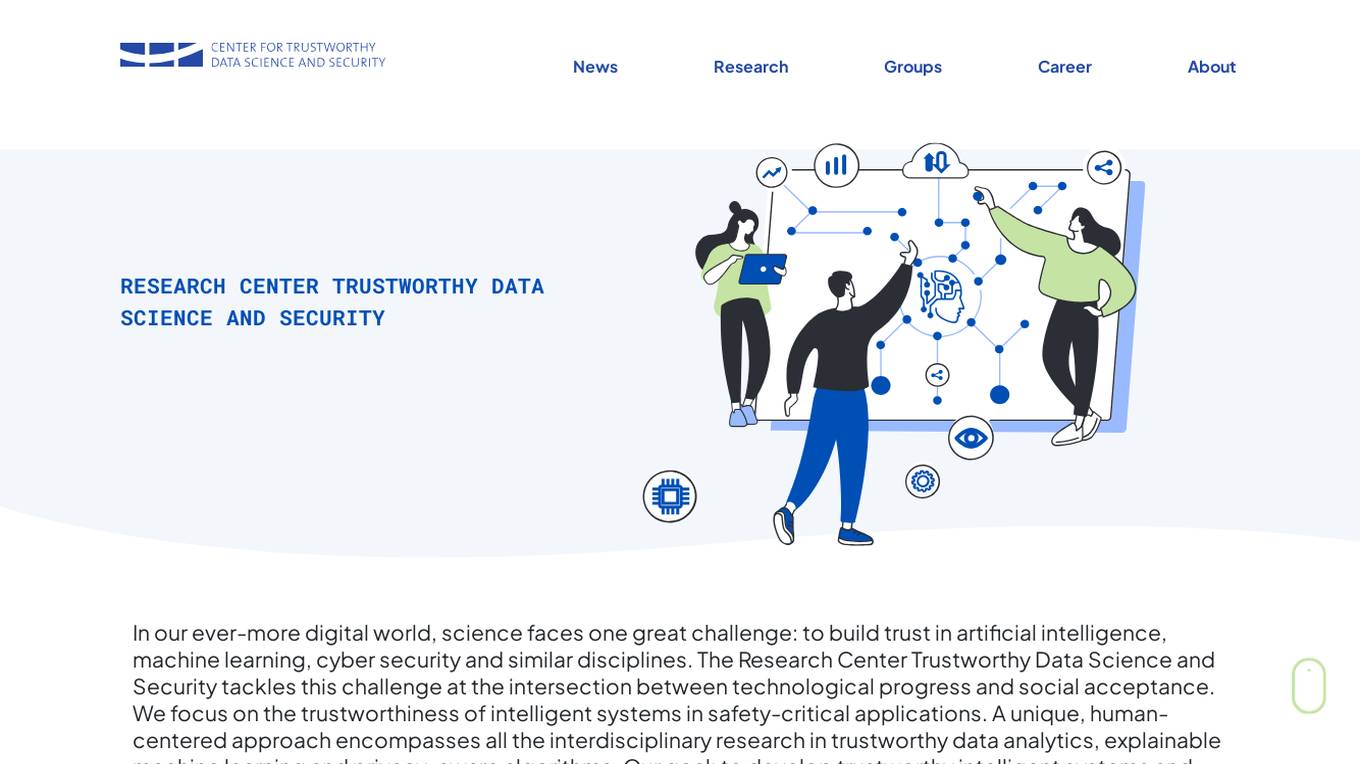
Research Center Trustworthy Data Science and Security
The Research Center Trustworthy Data Science and Security is a hub for interdisciplinary research focusing on building trust in artificial intelligence, machine learning, and cyber security. The center aims to develop trustworthy intelligent systems through research in trustworthy data analytics, explainable machine learning, and privacy-aware algorithms. By addressing the intersection of technological progress and social acceptance, the center seeks to enable private citizens to understand and trust technology in safety-critical applications.
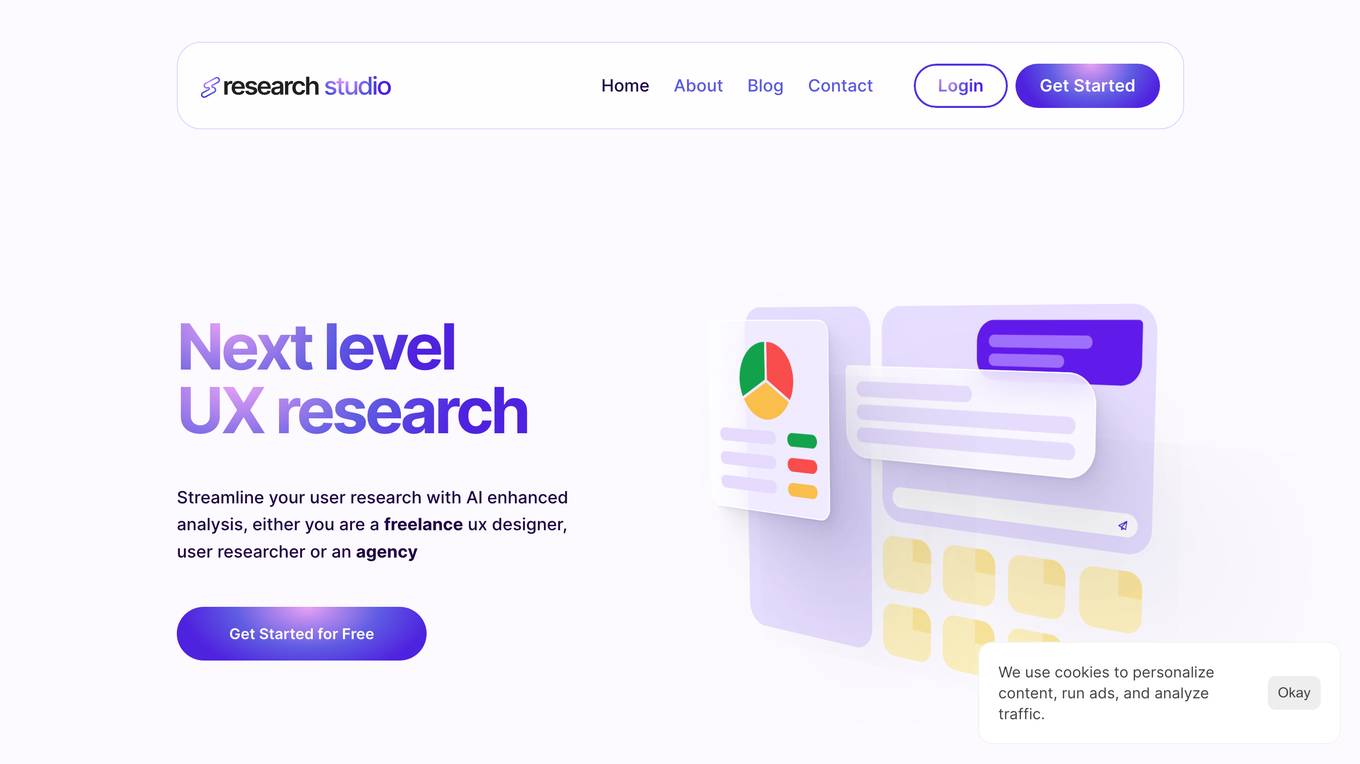
Research Studio
Research Studio is a next-level UX research tool that helps you streamline your user research with AI-enhanced analysis. Whether you're a freelance UX designer, user researcher, or agency, Research Studio can help you get the insights you need to make better decisions about your products and services.
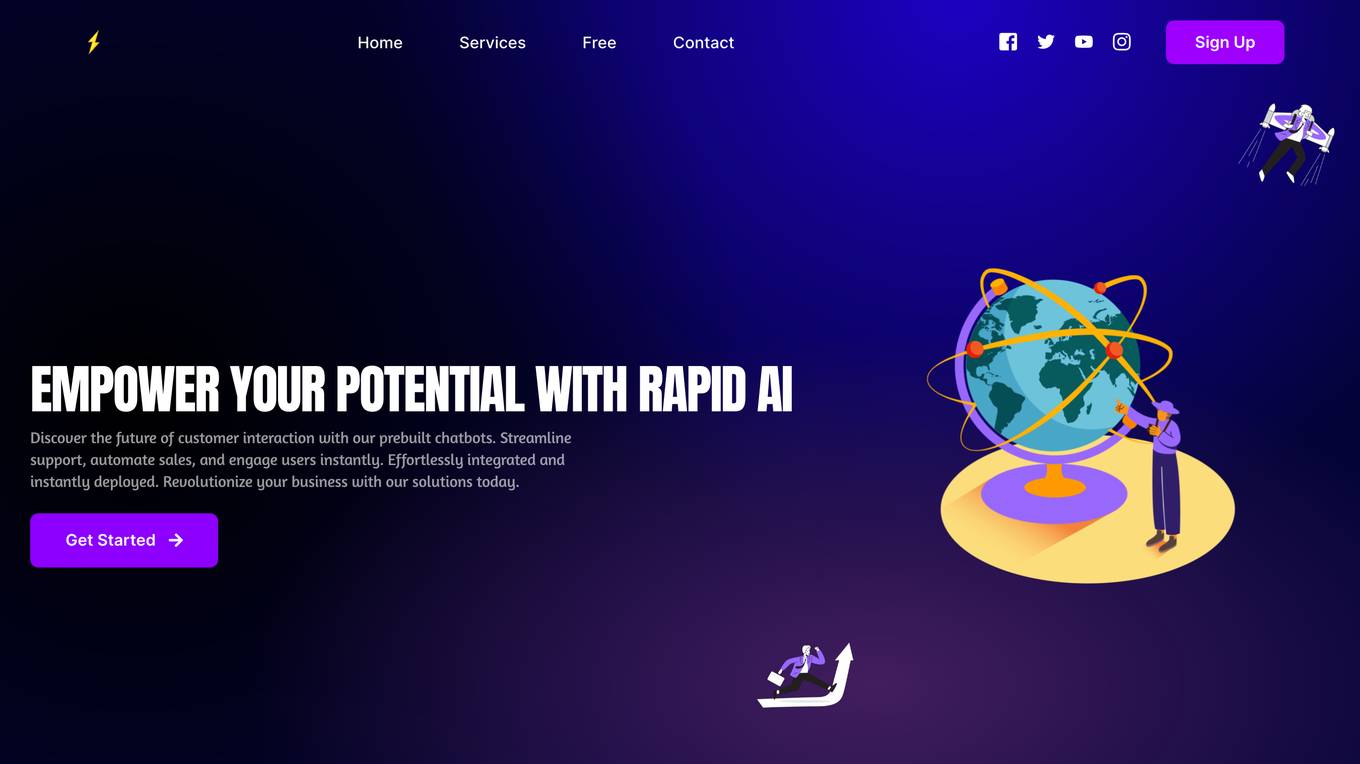
RapidAI Research Institute
RapidAI Research Institute is an academic institution under the RapidAI open-source organization, a non-enterprise academic institution. It serves as a platform for academic research and collaboration, providing opportunities for aspiring researchers to publish papers and engage in scholarly activities. The institute offers mentorship programs and benefits for members, including access to resources such as internet connectivity, GPU configurations, and storage space. The management team consists of esteemed professionals in the field, ensuring a conducive environment for academic growth and development.
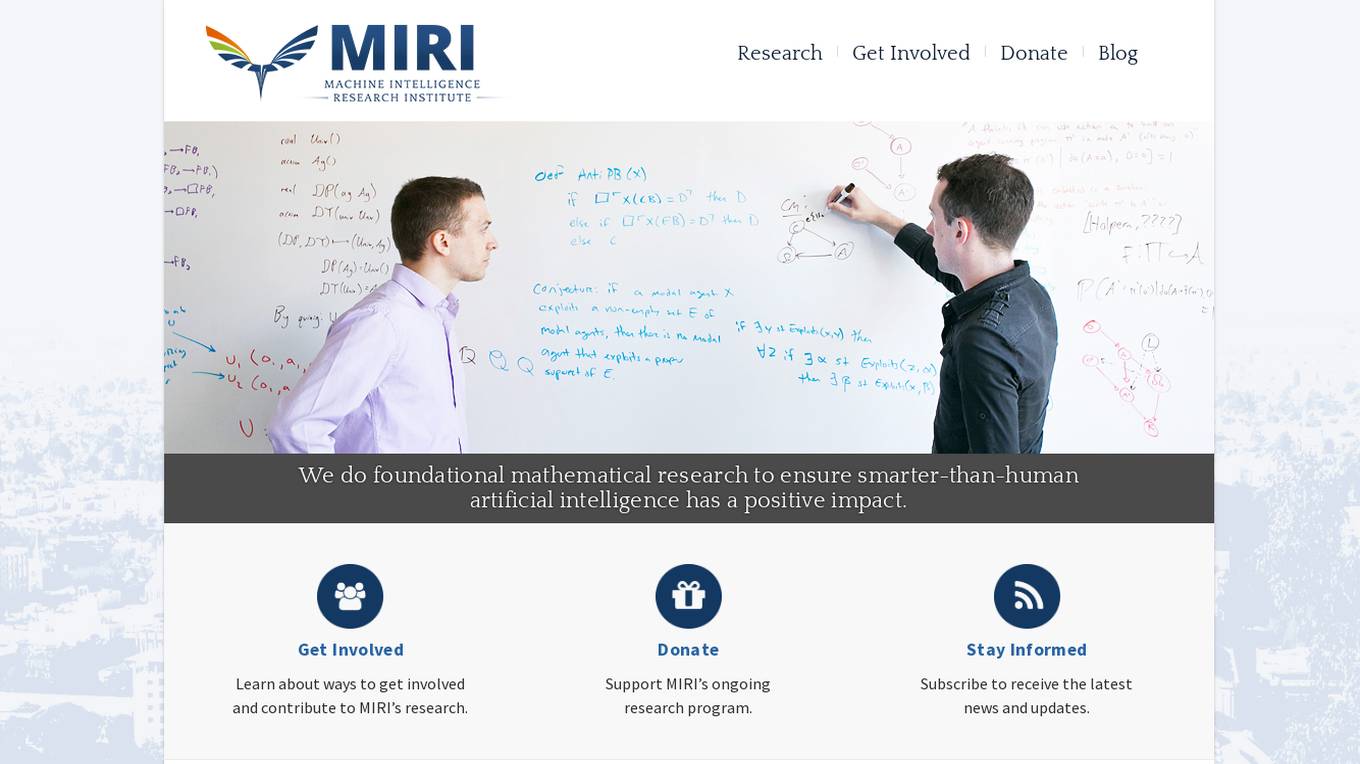
MIRI (Machine Intelligence Research Institute)
MIRI (Machine Intelligence Research Institute) is a non-profit research organization dedicated to ensuring that artificial intelligence has a positive impact on humanity. MIRI conducts foundational mathematical research on topics such as decision theory, game theory, and reinforcement learning, with the goal of developing new insights into how to build safe and beneficial AI systems.
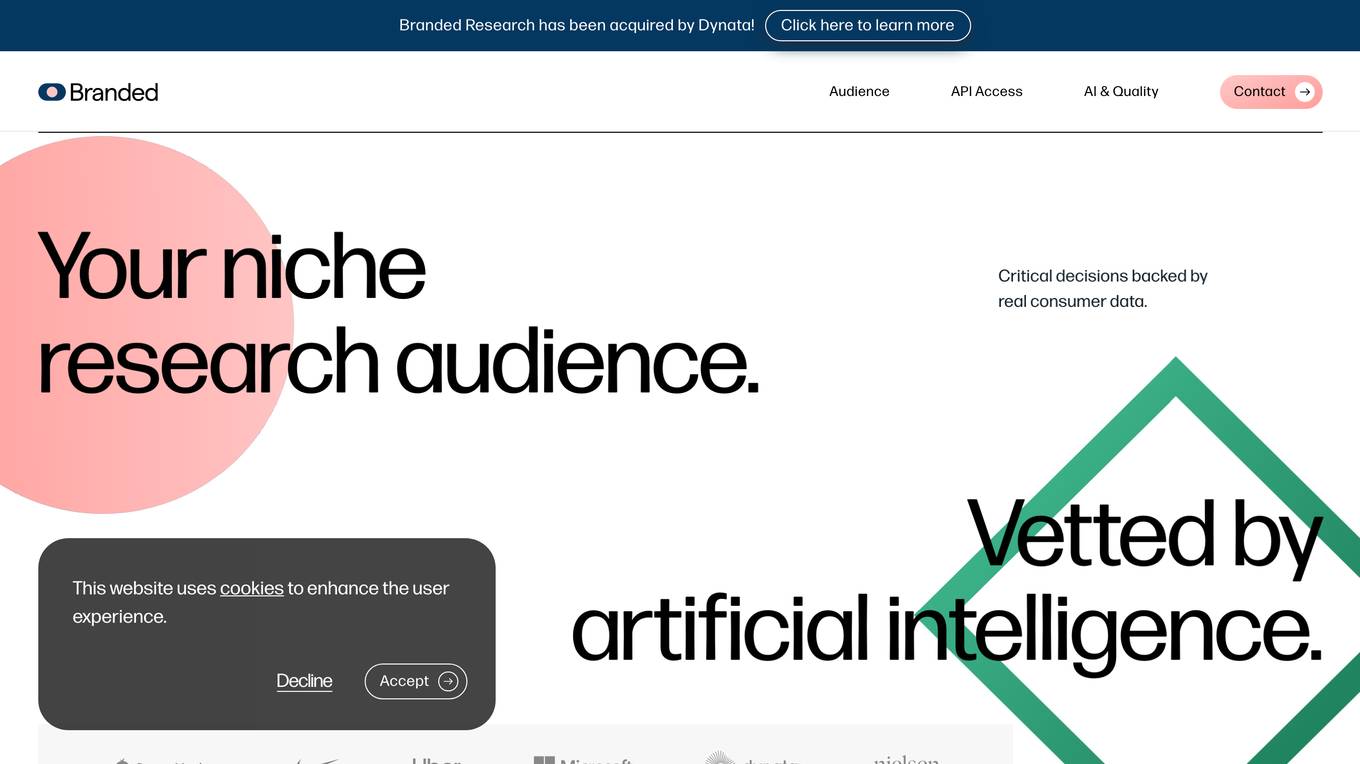
Branded Research
Branded Research, acquired by Dynata, provides access to AI-verified audience insights. It offers a range of research methods, including surveys, webcam studies, and emotional AI. With its advanced algorithms and extensive profiling, Branded helps businesses connect with their target audience and gain valuable insights to drive innovation. The company serves various industries, including tech, consumer goods, healthcare, and research agencies.
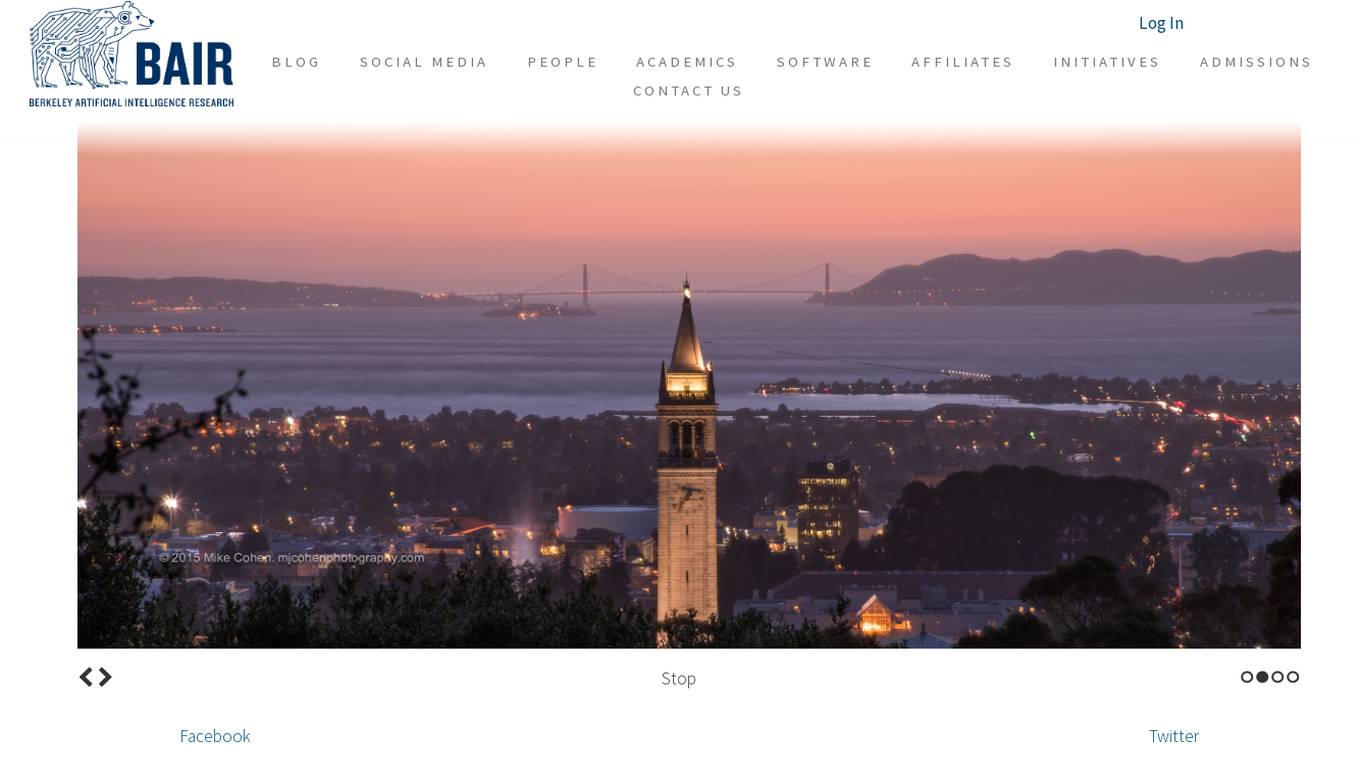
Berkeley Artificial Intelligence Research (BAIR) Lab
The Berkeley Artificial Intelligence Research (BAIR) Lab is a renowned research lab at UC Berkeley focusing on computer vision, machine learning, natural language processing, planning, control, and robotics. With over 50 faculty members and 300 graduate students, BAIR conducts research on fundamental advances in AI and interdisciplinary themes like multi-modal deep learning and human-compatible AI.

AIM Research
AIM Research is a leading platform providing insights and analysis on the Artificial Intelligence industry. The website offers a comprehensive range of resources, including research reports, event coverage, news articles, and expert opinions. AIM Research focuses on highlighting the latest trends, innovations, and key players in the AI sector, catering to professionals, researchers, and enthusiasts seeking in-depth knowledge and understanding of AI technologies and applications.
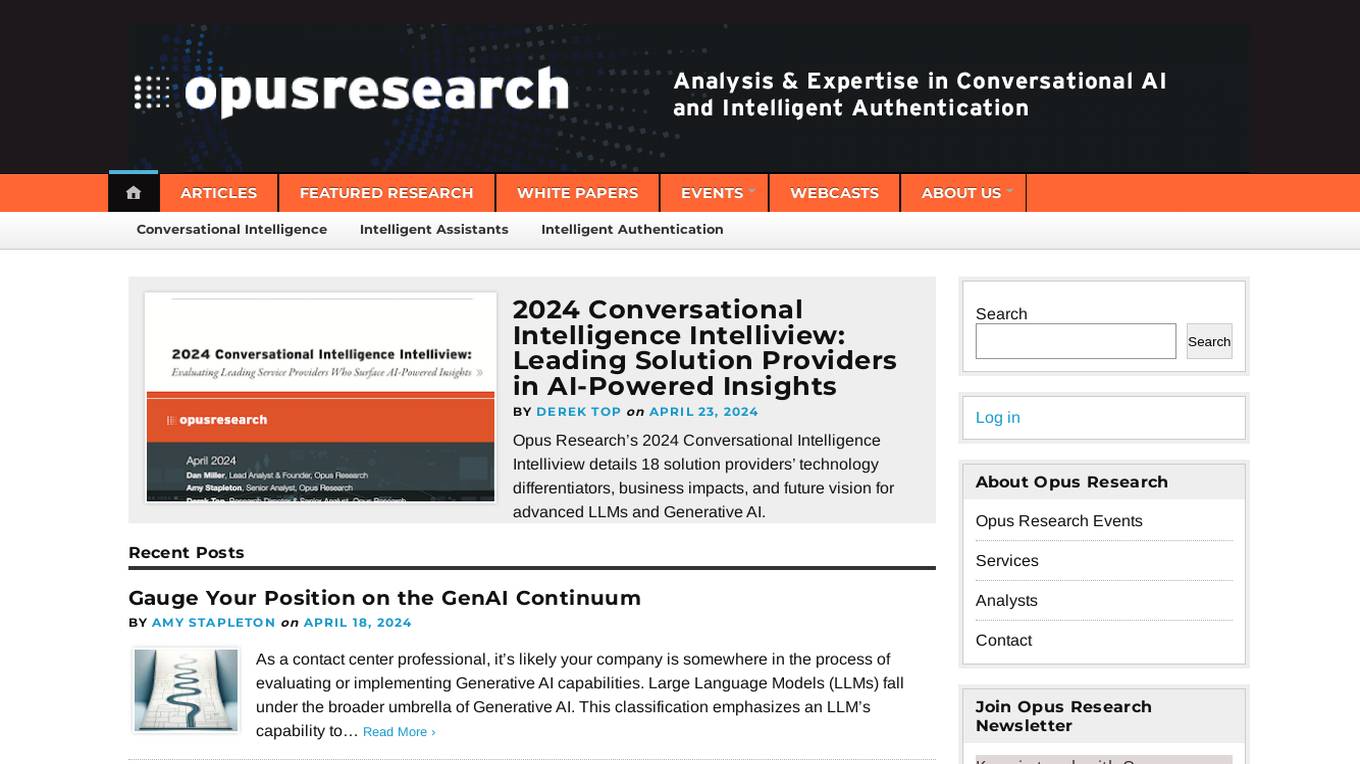
Opus Research
Opus Research is a leading provider of market research, consulting, and advisory services to the global digital communications and collaboration sectors. The company's research focuses on the convergence of emerging technologies, including artificial intelligence (AI), machine learning (ML), and natural language processing (NLP), with the communications and collaboration industries.
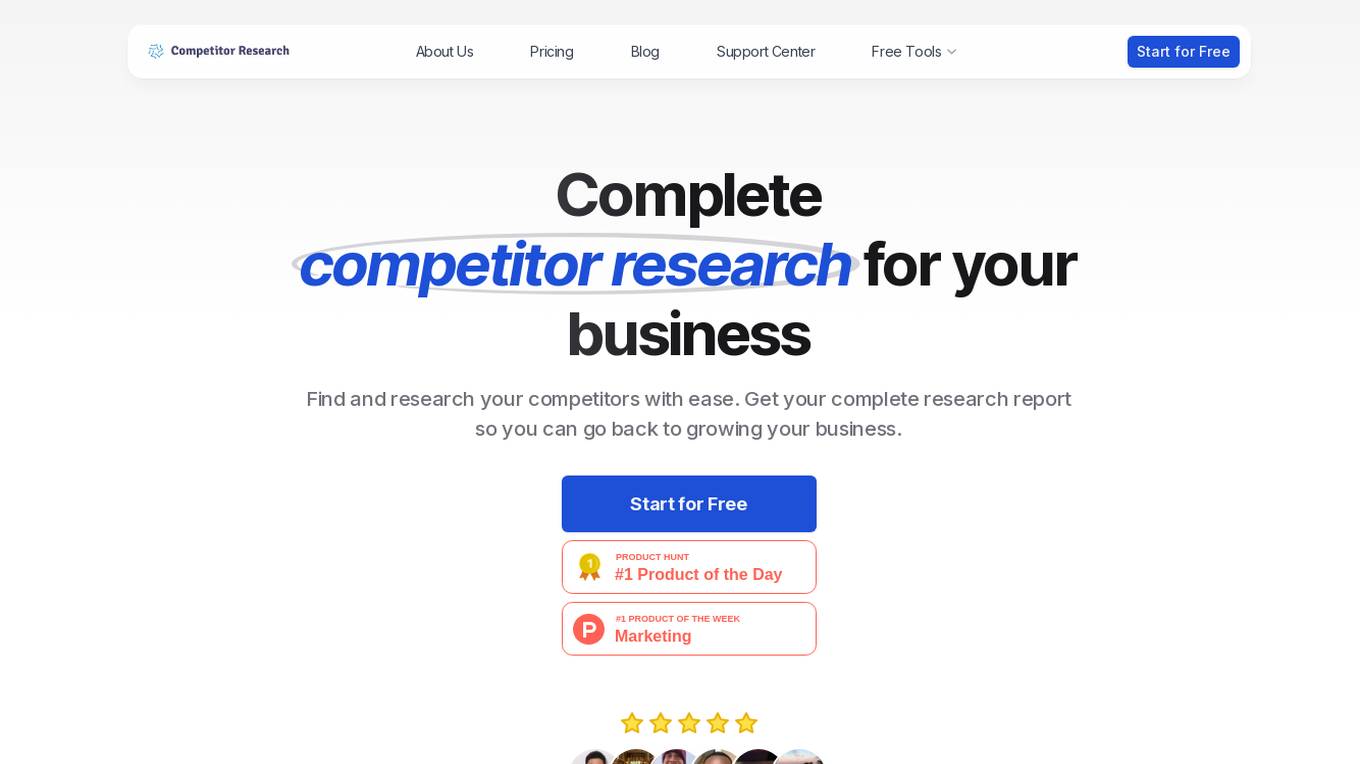
Competitor Research
Competitor Research is an AI-powered tool that helps businesses analyze and understand their competitors. It provides a comprehensive research report on direct, indirect, substitute, and potential competitors, including insights on search traffic, keywords, backlinks, target audience, pricing strategy, website performance, and customer engagement. The tool uses AI to save time and deliver actionable insights to help businesses grow and stay ahead of the competition.
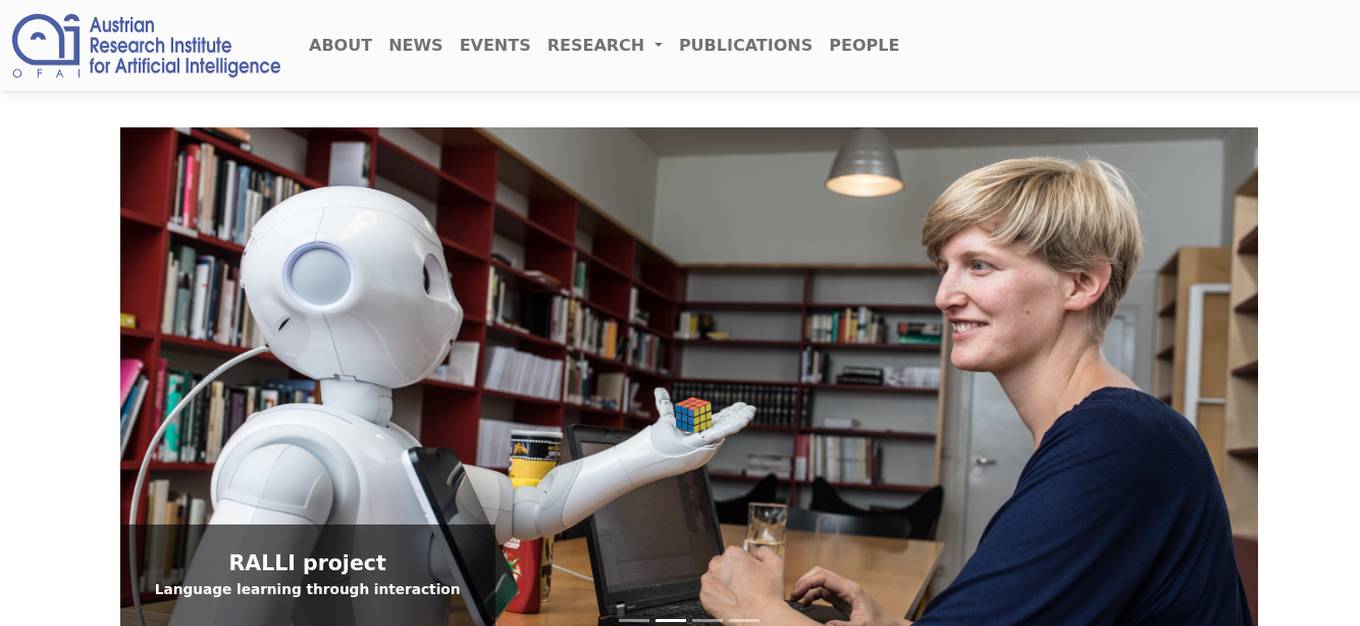
Austrian Research Institute for Artificial Intelligence
The Austrian Research Institute for Artificial Intelligence (OFAI) is a renowned institute based in Vienna, Austria, with a focus on AI research and development. With over 40 years of excellence in artificial intelligence, OFAI is dedicated to advancing language learning, computational linguistics, and AI applications. The institute collaborates on various projects, software development, and publications, contributing significantly to the field of AI. OFAI's work encompasses a wide range of research areas and resources, aiming to explore the potential of AI in different domains.
0 - Open Source AI Tools
20 - OpenAI Gpts
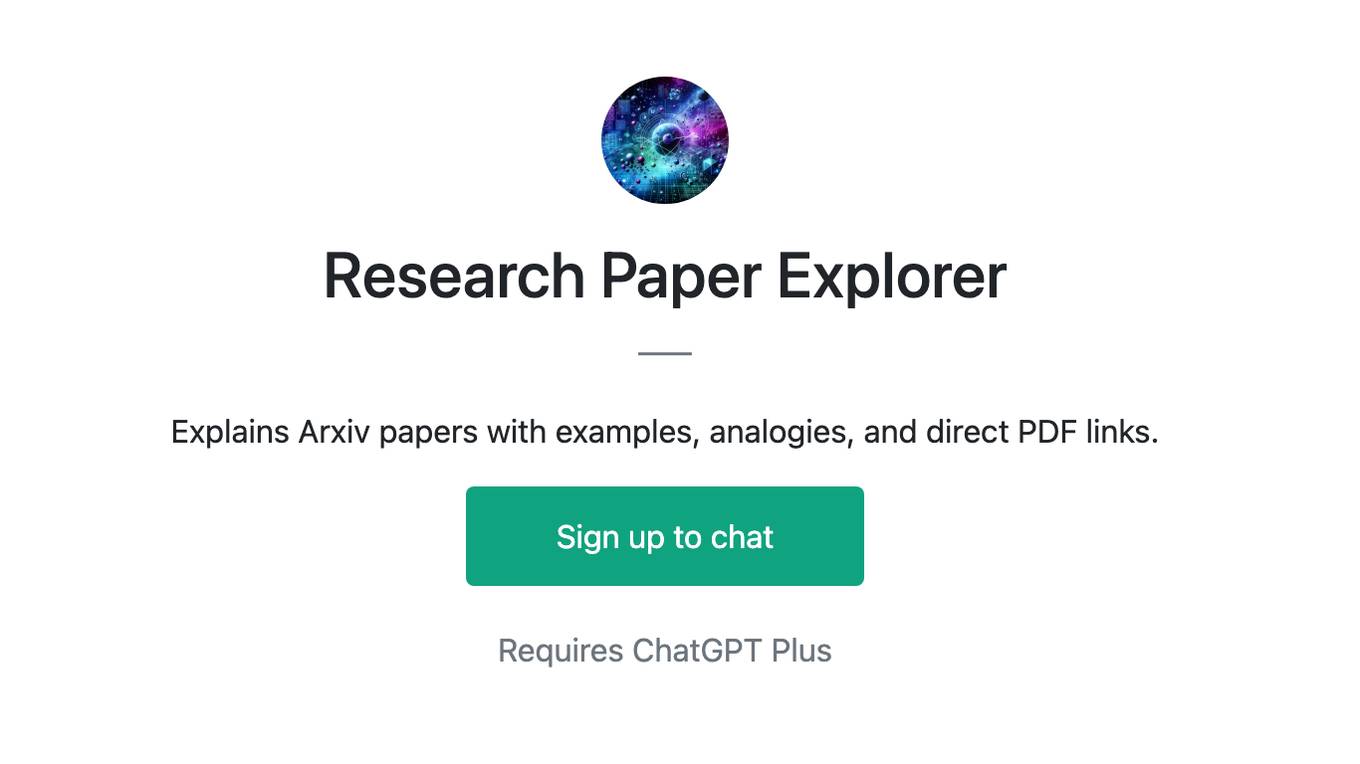
Research Paper Explorer
Explains Arxiv papers with examples, analogies, and direct PDF links.
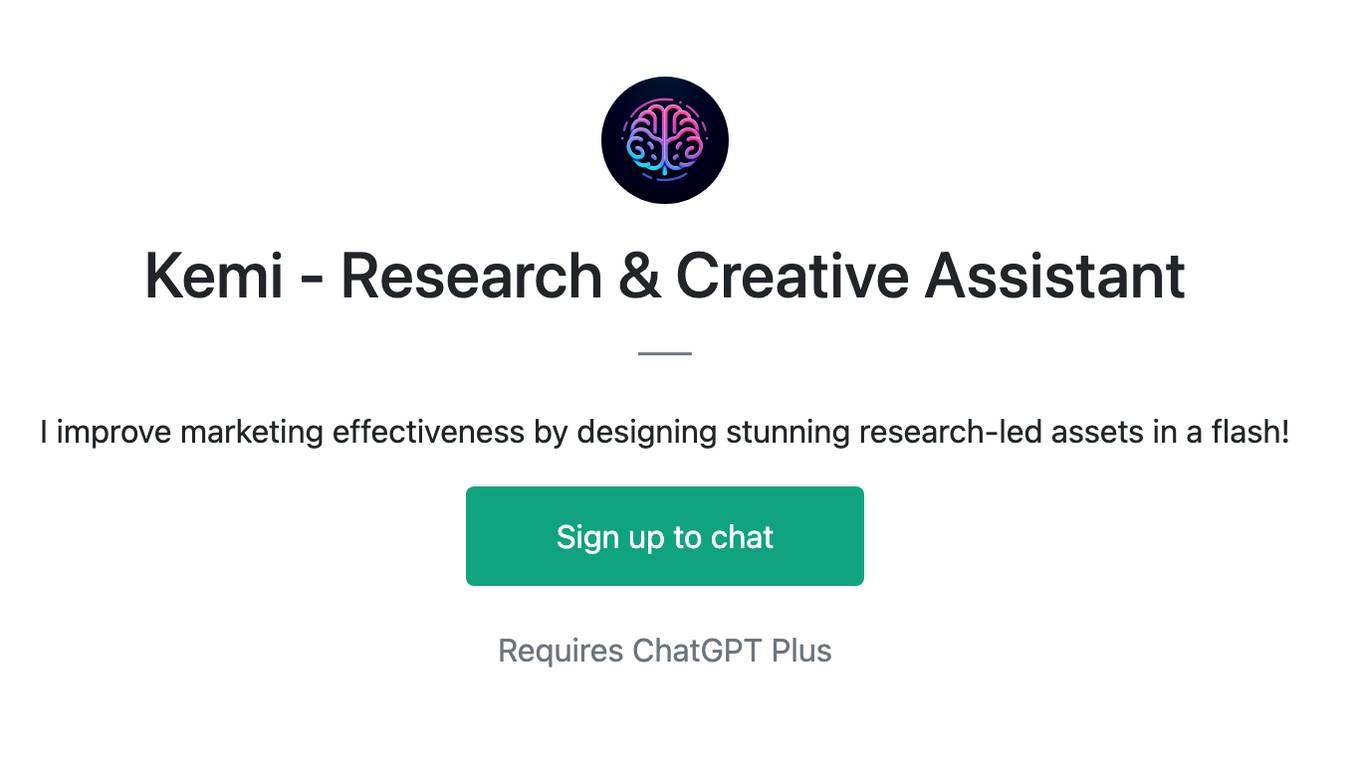
Kemi - Research & Creative Assistant
I improve marketing effectiveness by designing stunning research-led assets in a flash!
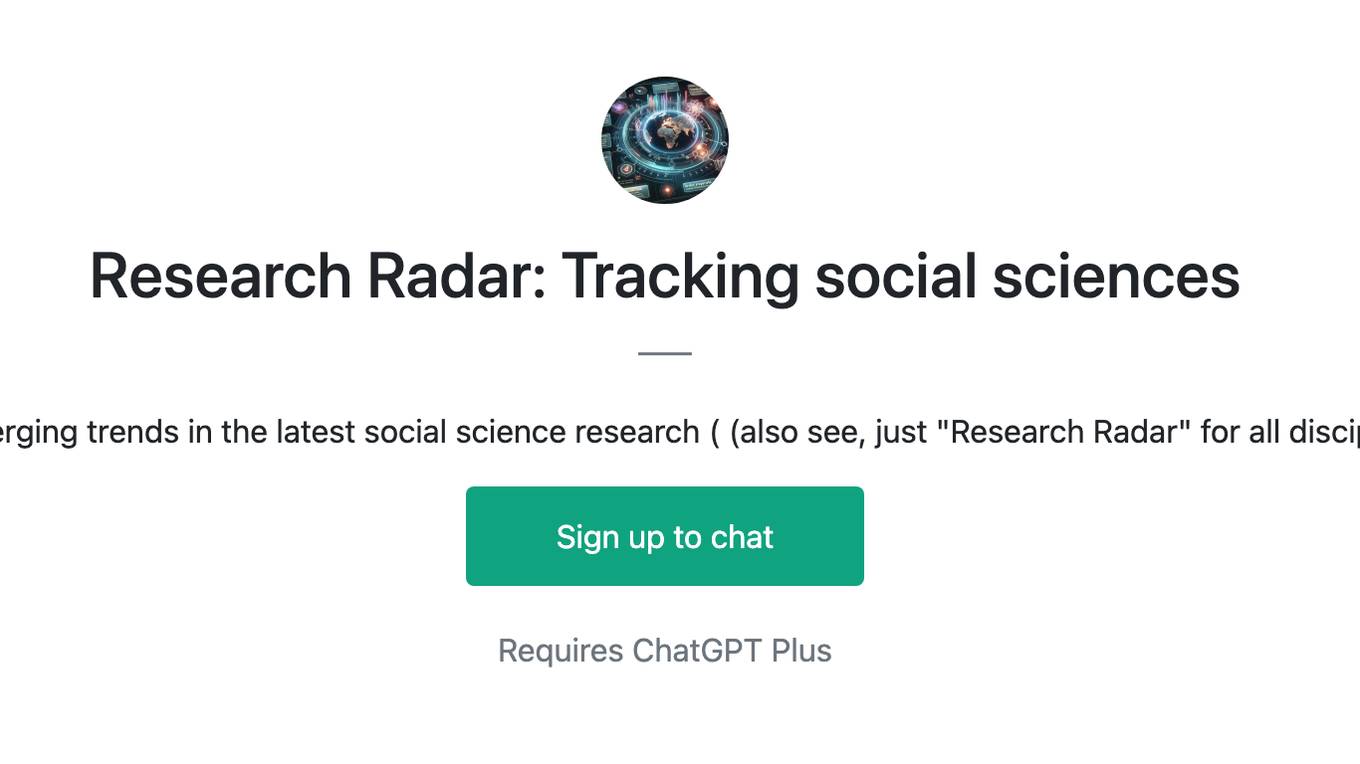
Research Radar: Tracking social sciences
Spot emerging trends in the latest social science research ( (also see, just "Research Radar" for all disciplines))
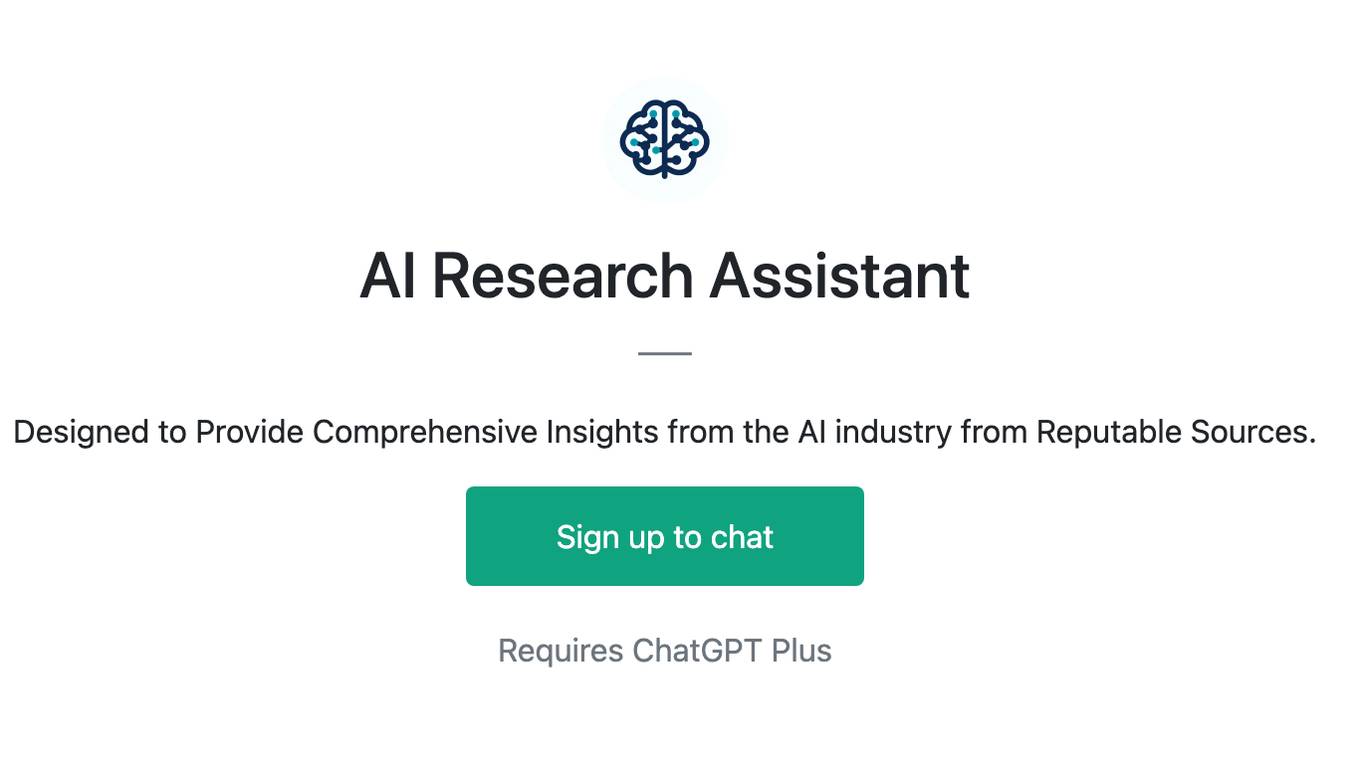
AI Research Assistant
Designed to Provide Comprehensive Insights from the AI industry from Reputable Sources.
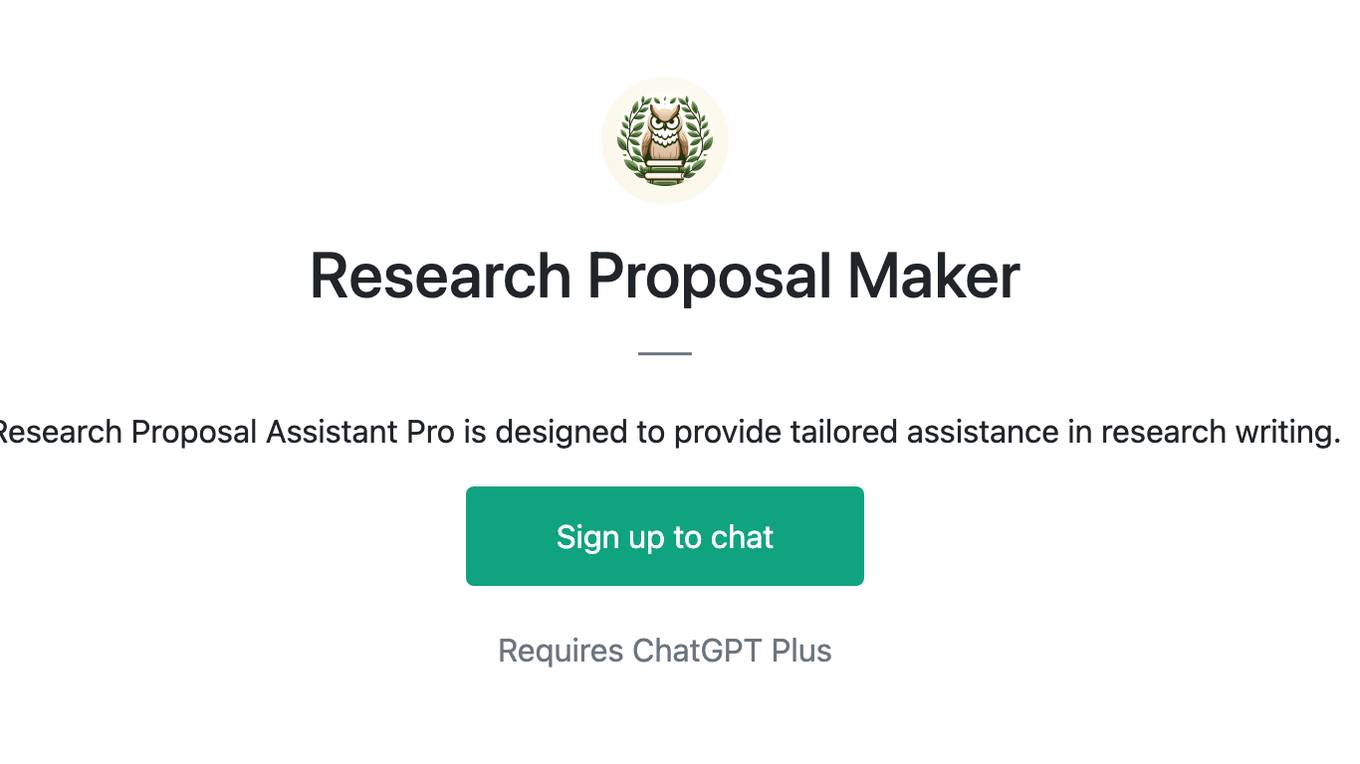
Research Proposal Maker
Research Proposal Assistant Pro is designed to provide tailored assistance in research writing.
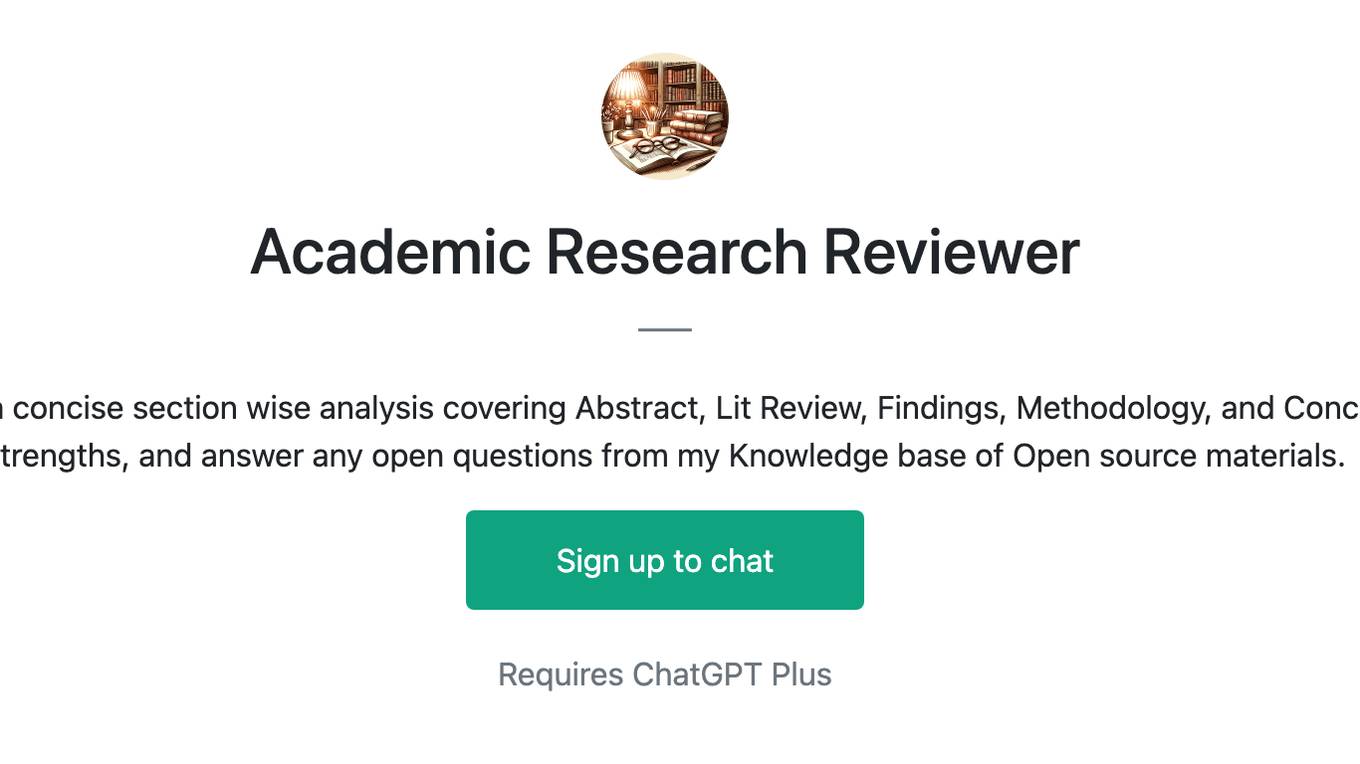
Academic Research Reviewer
Upon uploading a research paper, I provide a concise section wise analysis covering Abstract, Lit Review, Findings, Methodology, and Conclusion. I also critique the work, highlight its strengths, and answer any open questions from my Knowledge base of Open source materials.
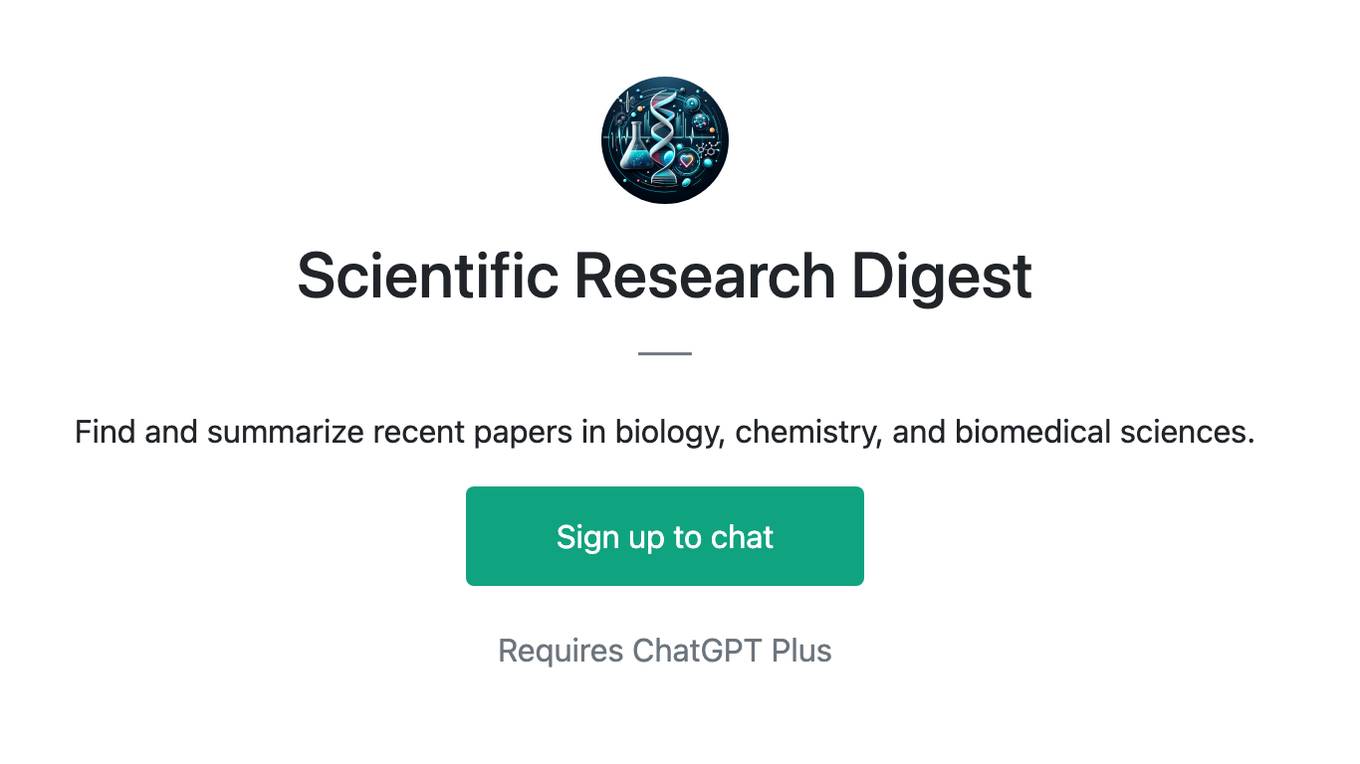
Scientific Research Digest
Find and summarize recent papers in biology, chemistry, and biomedical sciences.
